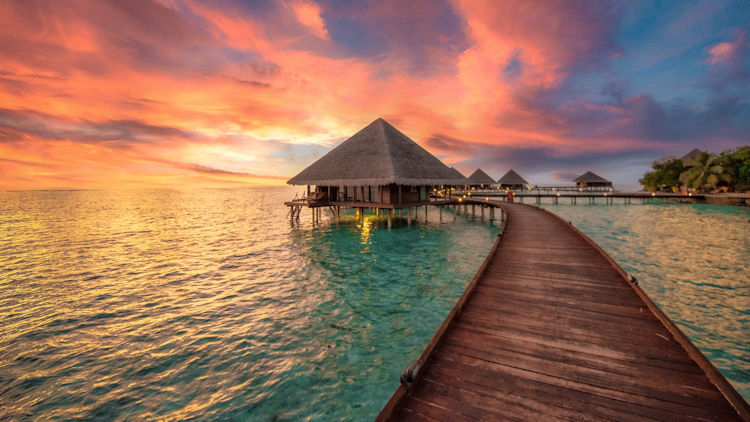Introduction
Luxury travel has undergone a remarkable transformation over the past few decades, evolving from traditional opulent resorts and high-end accommodations to a broader spectrum of unique and personalized experiences. Today’s luxury travelers seek not only comfort and exclusivity but also immersive and authentic experiences that cater to their individual tastes and desires. This article explores the evolution of luxury travel, highlighting the shift from conventional luxury to innovative and bespoke travel experiences.
1. Traditional Luxury Travel
a. Classic Luxury Resorts and Hotels
- Opulent Accommodations: Traditional luxury travel was defined by extravagant resorts and five-star hotels offering unparalleled comfort, elegance, and high-end amenities. These accommodations often featured lavish interiors, exceptional service, and exclusive facilities such as private beaches, gourmet dining, and spa treatments.
- Iconic Destinations: Classic luxury destinations included renowned locations such as the French Riviera, the Maldives, and luxury city hotels in major global cities. These destinations were synonymous with sophistication and exclusivity, attracting affluent travelers seeking a high standard of living.
b. High-End Travel Services
- Private Jets and Yachts: The pinnacle of traditional luxury travel often involved private jets and yachts, providing unparalleled privacy, comfort, and flexibility. These modes of transport allowed travelers to avoid commercial airports and enjoy personalized services while traveling.
- Concierge Services: Luxury travel also included personalized concierge services, offering bespoke arrangements for dining, entertainment, and leisure activities. High-end concierge teams catered to every need, ensuring a seamless and stress-free travel experience.
2. The Shift to Unique Experiences
a. The Rise of Experiential Luxury
- Personalized and Immersive Experiences: Modern luxury travelers increasingly seek personalized and immersive experiences that go beyond traditional comfort. This shift emphasizes unique and meaningful interactions with destinations, cultures, and local communities.
- Examples of Experiential Luxury: Activities such as private cooking classes with renowned chefs, exclusive access to cultural events, and personalized wildlife safaris exemplify the trend toward experiential luxury. These experiences offer travelers the opportunity to engage deeply with their surroundings and create lasting memories.
b. Sustainable and Ethical Luxury
- Eco-Friendly Practices: The growing awareness of environmental issues has influenced the evolution of luxury travel, with many travelers seeking eco-friendly and sustainable options. Luxury accommodations and travel companies are adopting green practices, such as using renewable energy, reducing waste, and supporting conservation efforts.
- Ethical Tourism: Ethical considerations play a significant role in modern luxury travel, with travelers prioritizing responsible tourism practices. This includes supporting local communities, respecting cultural heritage, and promoting fair trade and sustainable development.
3. Innovative Luxury Travel Trends
a. Wellness and Health-Oriented Luxury
- Luxury Wellness Retreats: Wellness travel has become a major trend, with luxury travelers seeking retreats focused on health and well-being. These retreats offer holistic experiences, including yoga, meditation, and spa treatments, designed to rejuvenate the body and mind.
- Personalized Health Programs: Luxury wellness experiences often include personalized health programs, such as bespoke fitness plans, nutritional consultations, and wellness assessments. These programs cater to individual needs and preferences, enhancing overall well-being.
b. Adventure and Authentic Experiences
- Unique Adventure Travel: Luxury travelers are increasingly drawn to unique adventure experiences that combine thrill-seeking activities with high-end comfort. Examples include luxury safaris in Africa, private yacht expeditions to remote islands, and exclusive guided tours of historical sites.
- Cultural Immersion: Authentic cultural experiences are highly valued, with travelers seeking opportunities to engage with local traditions and lifestyles. Luxury travel companies offer curated experiences that provide deeper insights into the culture, history, and daily life of destinations.
4. The Role of Technology in Luxury Travel
a. Digital Innovation
- Smart Accommodations: Technology has enhanced the luxury travel experience through smart accommodations that offer advanced features such as automated room controls, personalized entertainment options, and high-speed connectivity.
- Virtual Reality Previews: Virtual reality (VR) technology allows travelers to preview destinations and accommodations before booking. This innovation helps travelers make informed decisions and enhances their overall experience.
b. Enhanced Personalization
- AI and Data-Driven Personalization: Artificial intelligence (AI) and data analytics are used to personalize travel experiences based on individual preferences and behavior. This technology enables luxury travel providers to offer tailored recommendations and services that align with travelers’ interests and needs.
5. The Future of Luxury Travel
a. Emerging Trends
- Hyper-Personalized Travel: The future of luxury travel will likely see even greater emphasis on hyper-personalization, with travel providers using advanced technology and data to create bespoke experiences for each traveler.
- Immersive and Experiential Luxury: Continued innovation in immersive and experiential luxury will shape the future of travel, with a focus on unique, authentic, and meaningful interactions.
b. Evolving Expectations
- Changing Demographics: The expectations of luxury travelers are evolving with changing demographics, including younger travelers who prioritize experiences over material luxury. Travel providers will need to adapt to these shifting preferences to remain competitive.

Conclusion
The evolution of luxury travel reflects a broader shift from traditional opulence to unique and personalized experiences. As travelers seek more meaningful and immersive interactions, luxury travel providers are adapting to offer bespoke experiences that cater to individual preferences and values. From sustainable practices and wellness retreats to innovative technology and authentic cultural immersion, the future of luxury travel promises to be dynamic and exciting.









